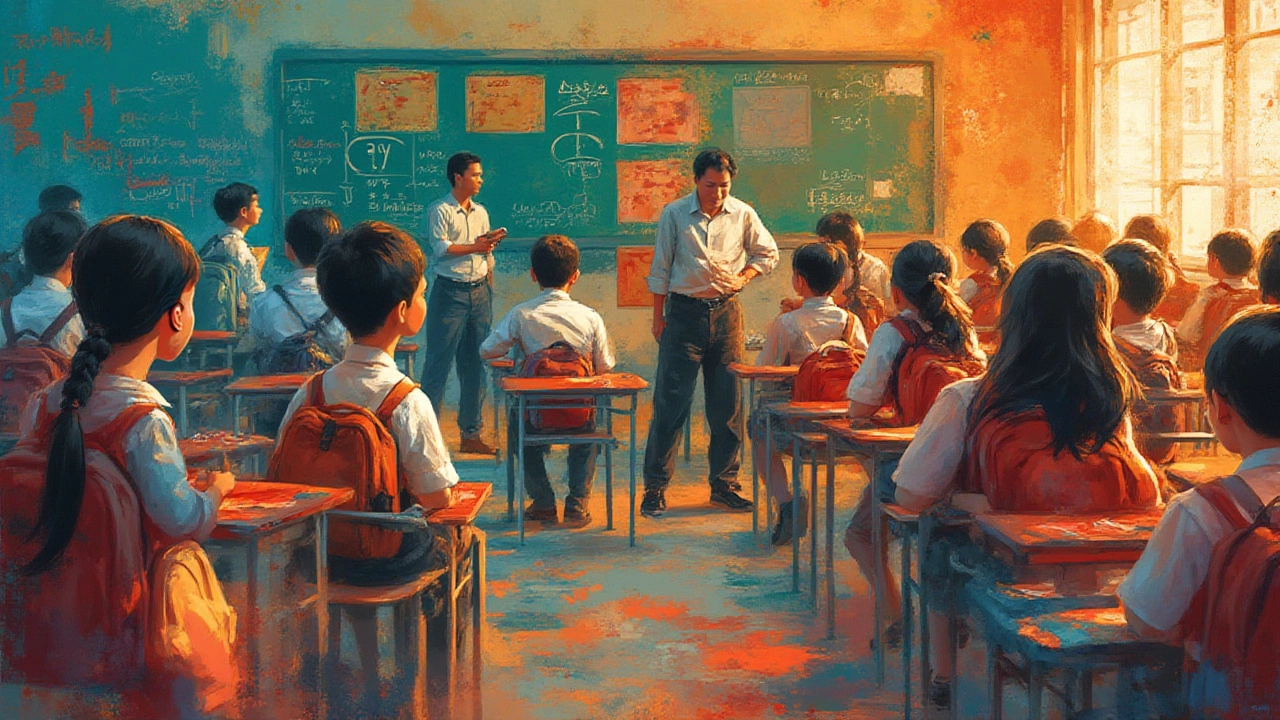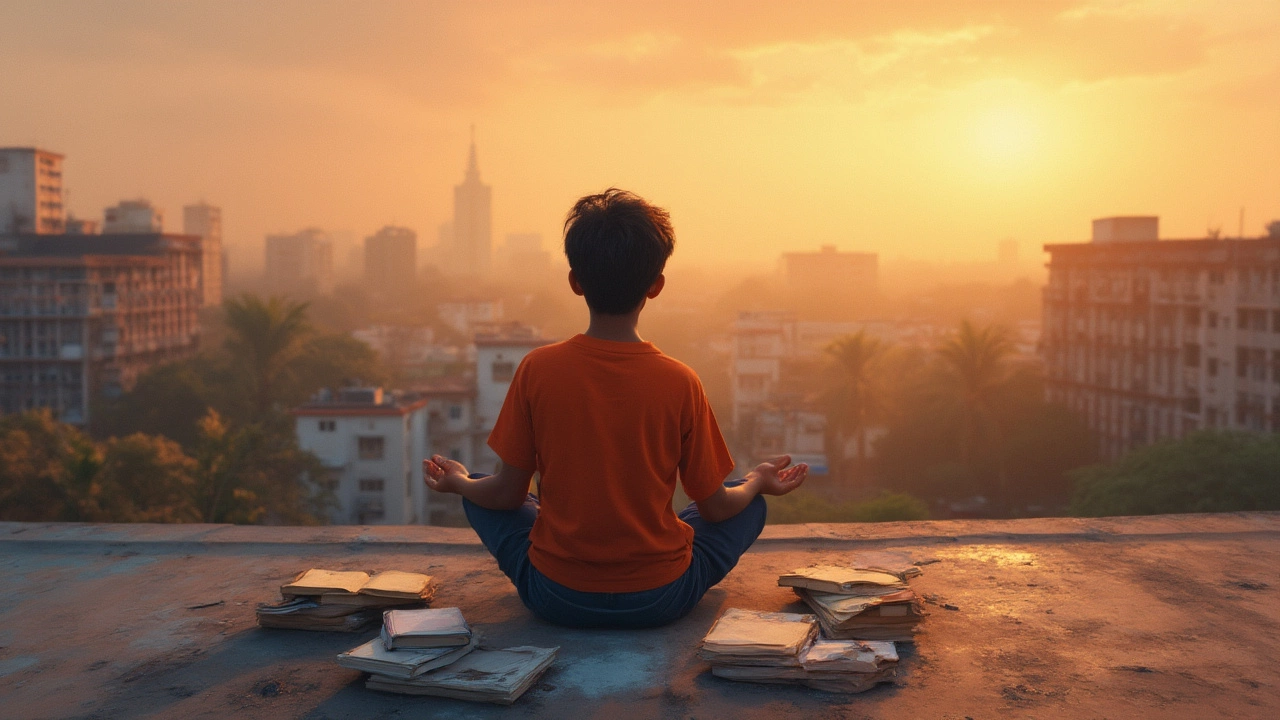Ever get the feeling your coursework is designed by evil geniuses? Well, depending on where you study, that might not even scratch the surface. Around the world, some students are stuck in daily academic marathons that would terrify even the most caffeine-fueled college kid. Forget Hollywood’s “lazy American college” stereotype: in some countries, students barely have time to blink, let alone party. The idea of “the hardest country to study” isn’t just about heavy textbooks—think late-night cramming as a lifestyle, relentless exams, and rules so strict you’d swear someone’s watching your every move (because, honestly, they often are). So, what makes a country the most brutal challenge for students, and where does the academic pressure truly peak?
Unmasking Academic Pressure: Top Contenders for the Hardest Country
When you ask students about the hardest country to study in, a handful of names come up again and again—South Korea, Japan, China, Singapore, and a few more. Each system brings its own brand of stress. South Korea’s infamous “education fever” has even caught the attention of the United Nations. The public obsession with ranking high in global league tables means students in Seoul often spend up to 16 hours a day juggling school, homework, and private cram academies called hagwons. If you thought your local tutoring center was expensive, some South Korean families spend almost half their annual income on extra lessons for their kids. This isn’t just bragging-rights stuff—student stress is so prevalent that South Korea has among the highest youth suicide rates in the world, according to the OECD.
Meanwhile, in Japan, school is just the beginning. Students face regular exams that determine nearly everything about their future—what high school they’ll attend, whether they’ll get into a good college, and by extension, how smooth their adult life might be. There’s an entire term, “examination hell,” for the brutal study-and-test grind. Missing one big test can reroute a kid’s whole career path. On top of long hours and pressure to join clubs or teams for social status, many students also take night classes at juku (private schools), often getting home after midnight. Some families even hire expensive tutors for “test strategy sessions.”
China isn’t exactly a place you’d call easy, either. At the center of student life is the gaokao—the world’s largest standardized exam, taken by more than 10 million students each summer. This two-day marathon basically decides whether you get a shot at a decent university, and by extension, a promising future. The gaokao is so legendary that entire towns shut down sections of noisy highways and businesses during exam days so students can focus. “Go home and let your kids study” is practically a public slogan every June. It’s not just academic pressure—social and family expectations pile on, since good scores bring honor to your family.
Then you have Singapore, a nation famous for strict laws and world-class schools. Here, education policies are designed for top performance, but they come with intense competition and zero tolerance for falling behind. A recent survey from TODAYonline showed 46% of students have constant worries about grades, and almost as many have considered dropping out. The PSLE (Primary School Leaving Exam) splits kids into academic streams at age 12. Too much pressure? Possibly, but Singapore regularly tops global rankings for science, math, and reading, so clearly something’s working—just at a high personal cost.
But these notorious systems aren’t alone. Students in France face years of rote learning and a brutal baccalauréat exam. Germany is known for “weed out” first-year university programs, with pass rates that can dip as low as 20% in fields like engineering. In Russia and Eastern Europe, strict lecture-hall traditions, little academic support, and endless oral exams give students nightmares. Even the UK, with its Oxbridge interview exams and constant essay deadlines, manages to make grown adults cry.
Here’s a look at some countries by pressure factor, using real metrics from the latest Global Education Surveys and UNESCO reports:
| Country | Average Study Hours/Day | High-Stakes Exams | Dropout Rate (%) | Student Satisfaction |
|---|---|---|---|---|
| South Korea | 12-16 | Yes (CSAT) | 26 | 2.5/5 |
| Japan | 10-14 | Yes (University Entrance) | 18 | 3/5 |
| China | 10-15 | Yes (Gaokao) | 30 | 2/5 |
| Singapore | 10-13 | Yes (PSLE, O/A levels) | 24 | 3/5 |
| France | 8-10 | Yes (Baccalauréat) | 22 | 3.5/5 |
| Germany | 8-11 | Partly (University semesters) | 28 | 3/5 |
| India | 8-12 | Yes (Board, entrance exams) | 35 | 2.5/5 |

Cultural Mindset, Social Pressure, and Beyond the Numbers
It isn’t just about test scores or study hours. Some cultures treat education like a full-contact sport, shaping how people work, socialize, and even rest. In much of East Asia, a student’s success is the whole family’s reputation. Your aunties and uncles are all-in on your grades. In South Korea, grandparents offer prayers at temples before the CSAT. In China, there’s “chicken blood education”—parents inject constant energy and anxiety to pump up their kids’ achievements. The idea is hardwired: doing well at school isn’t just for you; it’s for the group.
The cost? Sleep, social life, and sometimes even mental health. In Japan, counselors and hotlines called "Yorisoi" are normal in schools. Singaporean teens told Channel NewsAsia that lunchtime breakdowns happen—and no one’s surprised. One student described the education system as climbing an “endless staircase.” Imagine leaving homework to last minute, but that “last minute” stretches for years. The burnout culture is so widespread parents aren’t even shocked to see their kids asleep at kitchen tables.
Peer pressure is another wild card. Kids might not just compete for grades but for social status too. “If you’re not in the top quarter, you’re invisible,” one Japanese high schooler told NHK News. Study groups become survival cliques. Even study breaks can turn into ultra-competitive “who’s done more math” sessions. If you finally stumble into a social life, don’t expect it to be a break from competition—a lot of club activities are just as intense as classes.
But maybe the biggest pressure comes from the future. Fail a key exam, and your university doors shut fast. In countries with lifelong reputational systems (China’s gaokao, Korea’s CSAT, Singapore’s streaming), the wrong school or a bad exam day can define paychecks, marriage prospects, and even social circles for years. Western countries, for all their own problems, tend to offer more second chances. Most American schools let students retake classes or follow alternative paths later—unthinkable in much of Asia.
Parents, too, play a massive role. In many Asian cultures, there’s open talk about “tiger moms” who never let up on their kids. In France or Germany, academic support can be distant, but the system weeds people out fast—so if you miss the boat early, parents (and even teachers) kind of shrug. This makes emotional support low, but the pressure to keep up stays sky-high. There’s a running joke in Japan: if you pass your college entrance exam, your parents will finally speak to you as an equal. Until then, you're just a project.
Even pets feel the difference! My cat Luna would revolt if I ignored her for extra late-night work, but many students in Korea describe “study cats” who nap quietly beside them while they burn midnight oil. It’s a small comfort, but you have to grab what you can (dog Max, on the other hand, would probably chew up all my notes in protest).

Study Survival: Tips, Coping, and Real-World Takeaways
If you’re dreaming of studying abroad but spooked by these super-strict systems, there’s hope. Thousands of international students survive and even thrive every year—there’s just some extra footwork involved. The first thing to nail down is understanding the system’s rules before you arrive. In Japan, say, entrance exams can require course material that isn’t covered in your home country. In Korea, attending “cram schools” (hagwons) is almost expected if you want top results. Germany’s university classes can feel like all-or-nothing, with huge final exams and little day-to-day feedback.
Here are some things to keep in mind if you find yourself in one of the “hard countries” for study:
- Never skip orientation or intro sessions—these outline the real exam and attendance rules. German “Grundkurse” (foundation seminars) are especially vital, even if they seem optional.
- Build a routine around your toughest subject. In Korea or Singapore, that might be English or science. In France, focus extra time on literary analysis if your major requires it.
- Find a mentor. Whether it’s a senior student, a professor, or a study group member, someone ahead of you can show what’s actually tested, not just what’s in textbooks.
- Take breaks. This isn’t just “self-care” fluff—a 2023 study from Seoul National University proved students who sleep more than 6 hours a night scored 12% higher on final exams than those who didn’t. Don’t believe the “sleep is for the weak” myth.
- Don’t hide if you’re lost. Ask. In Singapore and Germany, professors expect you to approach them if you struggle—it’s not seen as weakness.
- Watch your diet. Late-night ramen is a symbol of student hustle culture, but too much junk food leads to faster burnout. Prep healthy snacks for long nights. Your future self will thank you.
- Manage expectations—especially your own. It’s easy to get caught in the stress tornado. Remember: most who graduate from these systems take a few hits before finding their rhythm.
The “hardest country to study” title isn’t just about who has the toughest exams—it’s shaped by culture, family, the school system, and a national obsession with achievement. But if you keep your head up (and maybe keep a supportive pet close by), even the most legendary systems are manageable.
